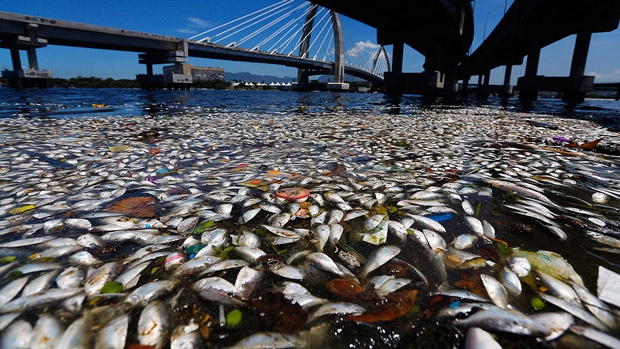-
Tips for becoming a good boxer - November 6, 2020
-
7 expert tips for making your hens night a memorable one - November 6, 2020
-
5 reasons to host your Christmas party on a cruise boat - November 6, 2020
-
What to do when you’re charged with a crime - November 6, 2020
-
Should you get one or multiple dogs? Here’s all you need to know - November 3, 2020
-
A Guide: How to Build Your Very Own Magic Mirror - February 14, 2019
-
Our Top Inspirational Baseball Stars - November 24, 2018
-
Five Tech Tools That Will Help You Turn Your Blog into a Business - November 24, 2018
-
How to Indulge on Vacation without Expanding Your Waist - November 9, 2018
-
5 Strategies for Businesses to Appeal to Today’s Increasingly Mobile-Crazed Customers - November 9, 2018
Olympic Athletes Might Be Forced To Swim In ‘Basically Raw Sewage’
This ensures that Olympic athletes are nearly certain to come into contact with disease-causing viruses.
Advertisement
The analysis revealed that the water contained “dangerously” high levels of virus and bacteria from human sewage in Olympic and Paralympic venues. The results of the tests have alarmed global experts and created dismay among competitors in training in Rio, including many who have already fallen ill with fevers, vomiting, and diarrhea.
“We’ve spent a lot of time there the past few years and haven’t had any issues with the water”, said Railey.
“I’ve had high temperatures and problems with my stomach”, David Hussl, one of the sailors, said. “It’s always one day completely in bed and then usually not sailing for two or three days”.
“There’s no point in going on about the quality of the water, the Olympics are going to be in Rio no matter what and so this subject is dead for me”, said Olympic gold medalist Marcelo Ferreira, according to Reuters.
The levels of raw sewage, the AP reported, contradict statements by Olympic organizers that the water-sports venues will be safe.
However the Brazilian government’s own water testing shows that on June 25 water at the famous Copacabana Beach was above legal bacteria limits.
The AP test, which covered five months, found waters unfit for water-based sporting events.
The Brazilian government, which once promised the moon to win its Olympic bid, is no longer sure that it’ll be ready in time. Almost 1,400 of them will be sailing in the waters near Marina da Gloria in Guanabara Bay, swimming off Copacabana beach, and canoeing and rowing on the brackish waters of the Rodrigo de Freitas Lake.
“What you have there is basically raw sewage“, said John Griffith, a marine biologist at the independent Southern California Coastal Water Research Project.
If it is true that the water quality monitoring is in fact so deficient, surely if the ISAF or the IOC or both to ask for, or even pay for water monitoring tests which will prove that waterborne viruses do not pose the health risk that Associated Press alleges.
Despite the test results, an Olympic official told AP that there are no plans to address or monitor the problem.
Athletes said that the conditions of the water appeared better than they were expecting.
In the U.S., Griffith said, areas with such levels of contamination “would be shut down immediately”.
Ashley did not mention specific measures being taken in advance of Olympic test events and qualifiers in triathlon, sailing and open-water swimming scheduled for August in Rio.
Advertisement
In this April 28, 2015 photo, Fernando Spilki, virologist and coordinator of the environmental quality program at Feevale University, holds up a water sample, backdropped by the Marina da Gloria, Zone 2, in Rio de Janeiro, Brazil. Illnesses, however, depends on some factors like immunity.





























